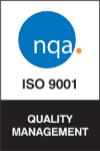Along with its Nordic neighbours, Iceland currently leads the rankings for gender equality, according to the World Economic Forum, and has done for the past eight years. In comparison, the UK currently resides in eighteenth place. We’ve made some progress, certainly, but after over forty years of equal pay legislation, can we learn from Iceland’s forward-thinking initiatives and stringent quotas, to develop a more progressive and sustainable approach to gender pay equality?
Iceland is planning to close the wage gap by further enforcing new legislation in 2018. This is the first of its kind and would require companies with twenty-five or more employees, to prove that they are paying men and women equally by certification, and if they fail to comply could incur penalties. Although Iceland is not the first country to consider and introduce a scheme of this kind, they will be the first to make auditing and a certification process a mandatory requirement. Their aim is to make all businesses compliant by 2022. The UK holds less stringent rules, although firms are required to publish data on their gender pay gap, it’s only for companies with 250 employees or more and offenders are not penalised. While it’s a start, experts don’t expect the UK to bridge the pay gap until 2060, so should we go further?
Legislation of this kind could certainly help reduce the gender pay gap, but maybe it’s more about the incentives and initiatives surrounding gender equality that are having the biggest impact. These initiatives include: offering career advice and implementing progression and support networks within businesses, strong and cost effective childcare, promoting a healthy work/life balance.
Childcare is an issue for a huge percentage of employees. In Iceland, every parent receives three months’ paid leave that is not transferable. Parents then have an additional three months to share as they would like, with a significant eighty percent of their salary up to a ceiling of £2,300 a month on a ‘use it or lose it’ basis. This forward-thinking approach to childcare has encouraged ninety percent of fathers to take up their paternal leave, and improved mothers’ return to work after giving birth. An improvement that I’m sure would be welcome in the UK.
Almost eighty percent of Icelandic women work, in comparison to 67.2% in the UK. With a forty percent quota for women on boards of companies with more than fifty employees, almost half of all board members of listed companies are now women. There is also a sizeable percentage of female employees in trade unions, they are negotiating favourable working conditions that are less discriminative. It’s certainly an amazing time to be a working woman in Iceland.
I think there is much to learn from Iceland. Using both the carrot and the stick is working, and although the UK has started work, there is clearly much more that we can do. It will be interesting to see what the figures are after five years of gender pay reporting. My view is we will need to take a much stronger position and follow some of the initiatives employed by Iceland.
For advice and support with your gender pay reporting please contact us on 020 3457 0894.











